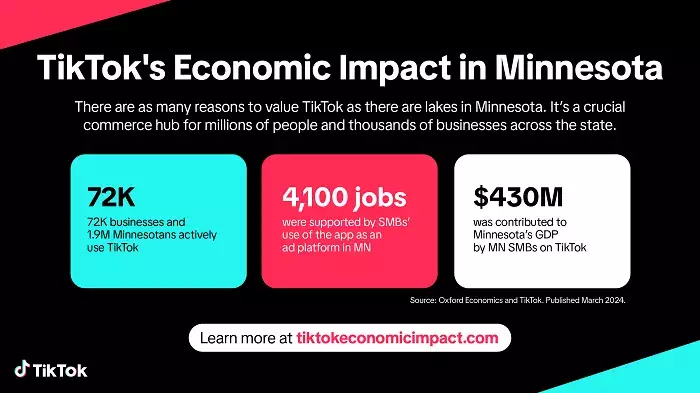TikTok’s recent efforts to oppose the sell-off ruling in the U.S. may not be as effective as they hoped. The platform has been highlighting its economic impact in specific U.S. states in an attempt to showcase the value it provides to American businesses. This strategy is part of TikTok’s ongoing campaign to mobilize its user community to lobby local senators against the sell-off bill. However, with the bill already approved, these efforts seem redundant at this point.
Earlier this year, TikTok tried a similar approach by sending creators to Washington to voice their opposition to the proposed bill in person. The platform also urged U.S. users to contact their local representatives through in-app notifications to prevent the sell-off bill from passing. Despite these efforts, the bill was approved by both the House and the Senate, raising concerns about TikTok’s influence on political decision-making.
It is perplexing that TikTok continues to push a similar narrative and emphasize its value to the U.S. market even after the bill has been passed. With limited options to challenge the sell-off, TikTok’s pursuit of legal action may face significant hurdles based on the existing legal framework and security concerns cited by the U.S. government. The platform’s attempt to halt the forced sell-off appears to be an uphill battle given the political and legal landscape.
Amidst TikTok’s struggle to navigate the sell-off situation, a group of creators is exploring legal action against the U.S. government, arguing that the ruling infringes on their First Amendment rights. However, the likelihood of success in such a legal challenge remains questionable, especially when national security interests are factored in. The sell-off bill is likely to stand despite these legal and advocacy challenges.
At present, TikTok finds itself in a precarious position with limited options to reverse the sell-off decision. The platform’s efforts to rally support and sway senators post-vote seem futile, as the outcome has already been determined. The uncertainty surrounding TikTok’s future in the U.S. underscores the complexities of navigating geopolitical tensions and regulatory scrutiny in the digital age.
Overall, TikTok’s battle against the sell-off bill appears to be a challenging endeavor with questionable effectiveness. As the platform grapples with legal and political roadblocks, its future in the U.S. remains uncertain until a definitive decision is made on the next steps to be taken.


Leave a Reply